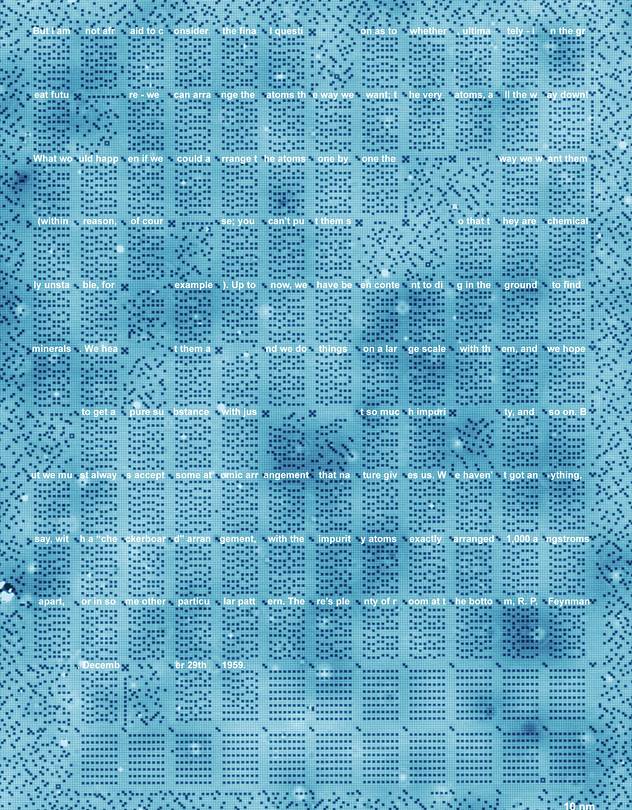Scientists Create 500 Terabit Per Square Inch Drive Using Single Atoms To Store Data
Any way you look at it, today's storage technologies are impressive. We can hold a tiny memory card no larger than our finger nails that can fit thousands of images, songs, and documents, and potentially hundreds of videos. We even just wrote about a new consumer hard drive from Seagate that packs 10 terabytes inside of its frame. Today, as consumers, finding enough storage isn't really a major issue, but that could change in the future.
Given some breakthrough technologies we've heard about in recent months, though, that could definitely change in the future. Just earlier this month, we reported on Microsoft accomplishing placing 200MB on a single strand of DNA, and if that wasn't impressive enough, we can fix that.
In the latest edition of the science journal Nature Nanotechnology, talk of storing data on atoms is detailed. If data can be stored on atoms, data storage would no longer be an issue, the data we'd have would take up less space, and it could also prove more efficient, to boot.

Trying to store data on atoms, perhaps surprisingly, isn't new, but the practices are evolving to become far more effective. Previous attempts, for example, have managed to store just 1 byte in an atom, whereas today, a thousand times that has been accomplished. For a proof-of-concept, the researchers from Delft University first stored a portion of Charles Darwin's On the Origin of Species, and then replaced that with 160 words from a 1959 lecture from physicist Richard Feynman.
The impressiveness of this work cannot be understated. The image above is a scan of atoms that are storing text, but that's only after the process arranged them that way. Before storing data this way, the atoms will have looked truly scattered, without any sort of order. Once the researcher's scanning tunneling microscope encodes the data, we see a much more organized arrangement.
As the researchers have managed to assign one bit per one atom, that gives us the possibility of seeing 500 terabits worth of data stored within a single square inch. If that's not mind-boggling, we don't know what is!

